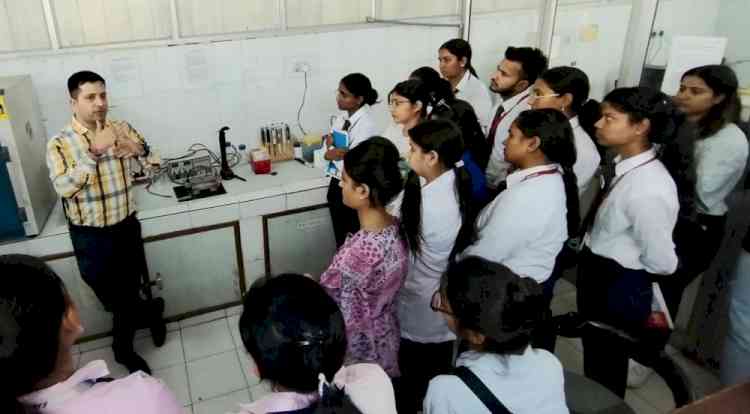World Breastfeeding Week (1st-7th August) - Experts call for awareness on exclusive breastfeeding for 0-6 months
Author(s): City Air NewsBangalore, July 31, 2017: World Breastfeeding Week is an annual celebration which is being held every year from 1 to 7 August in more than 120 countries. Being organized by WABA, WHO and UNICEF, WBW came up with...

Bangalore, July 31, 2017: World Breastfeeding Week is an annual celebration which is being held every year from 1 to 7 August in more than 120 countries. Being organized by WABA, WHO and UNICEF, WBW came up with the goal to promote exclusive breastfeeding for the first six months of life which yields tremendous health benefits, providing critical nutrients and protection from diseases.
Breastfeeding is the normal way of providing young infants with the nutrients they need for healthy growth and development. Nearly all mothers can breastfeed if they have accurate information and awareness on the health benefits of breastfeeding for the infants.
The recent data released by National Family Health Survey 4 (NFHS-4) shows that despite rise in the organized delivery as to nearly 79% nationally, the number of children breastfed within one hour of birth is less than 42%. The data also highlights that India ranks lowest among South Asian countries, including Afghanistan, Bangladesh and Sri Lanka in breastfeeding practices, with only 44 per cent women able to breastfeed their babies within one hour of delivery.
According to a report by NCBI (National Center for Biotechnology Information)the infants who are not breastfed are at a risk of increased incidence of infectious morbidity, including gastroenteritis and pneumonia, as well as elevated risks of childhood obesity, type 1 and type 2 diabetes, and sudden infant death syndrome (SIDS).
According to Dr. Hariram, Consultant Neonatologist and HOD Paediatric Fortis Hospital, Bannerghatta Road, “Breastfeeding supports infant’s immune system, nutritional needs and also protect them from various disorders like obesity and diabetes. Moreover, breastfeeding also protects the mothers against severe health conditions such as breast cancer. Exclusive breastfeeding for 6 months and more prevents under nutrition among the infants and protects them from the risk of diarrhoea and pneumonia.”
Colostrum, the yellowish, sticky breast milk produced during first few days of delivery, is recommended by WHO as the perfect food for the newborn, and feeding should be initiated within the first hour after birth. Exclusive breastfeeding is recommended up to 6 months of age, with continued breastfeeding along with appropriate complementary foods up to two years of age or beyond.
Also, breastfeeding can lower rates of obesity among kids, the World Health Organization justifies that breast milk provides the infant with food that is nutritious and can be easily digested, it also however helps the child to decide how much to eat and when to eat.
Dr.Anita.K.Mohan, Consultant Obstetrics& Gynaecology adds, “As mentioned in the UN Joint Statement, breast feeding is a human right issue for every mother and child. Every mother needs to be encouraged and supported to breast feed her new born. There is no substitute for breast milk. We need to be acutely aware of myths regarding breast feeding. Hence the family members need to be counselled regarding the advantages of breast feeding and more importantly, the disadvantages of formula feeding. With a concerted effort from every health giver, family, community and the government we can achieve the WHO goals of early initiation and exclusive breast feeding to all babies.“
The counselling, encouragement and support to mothers to initiate exclusive breastfeeding for their kids is extremely essential.

 cityairnews
cityairnews 
















